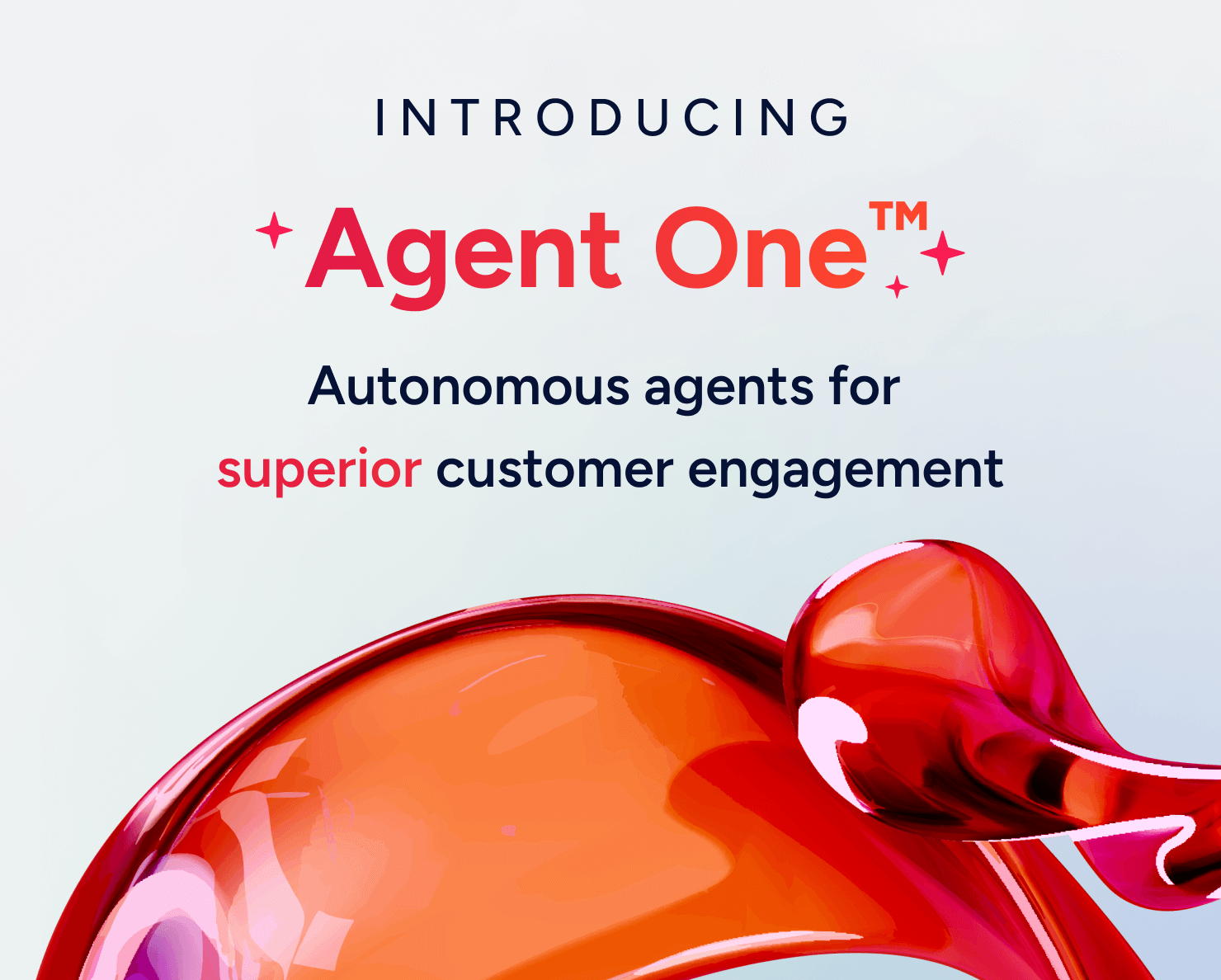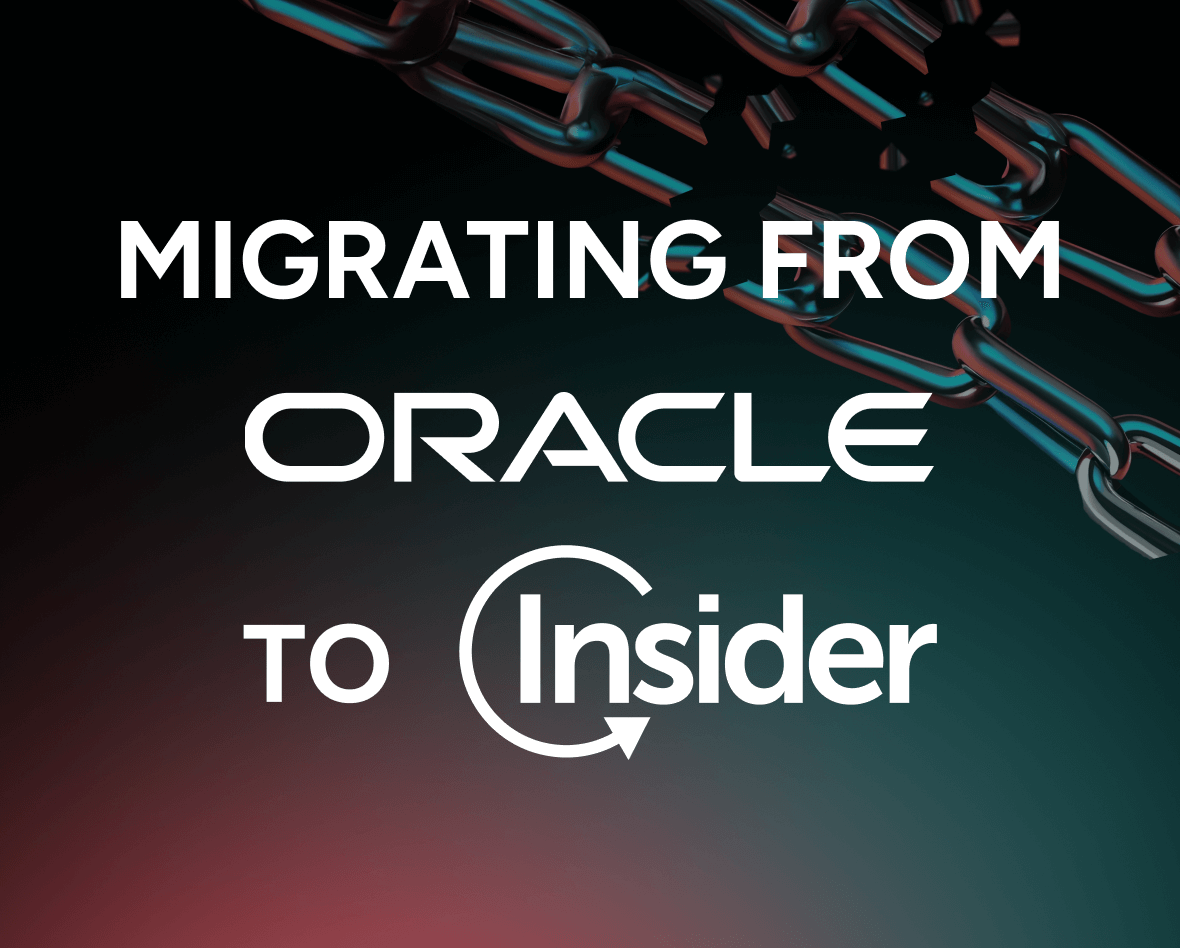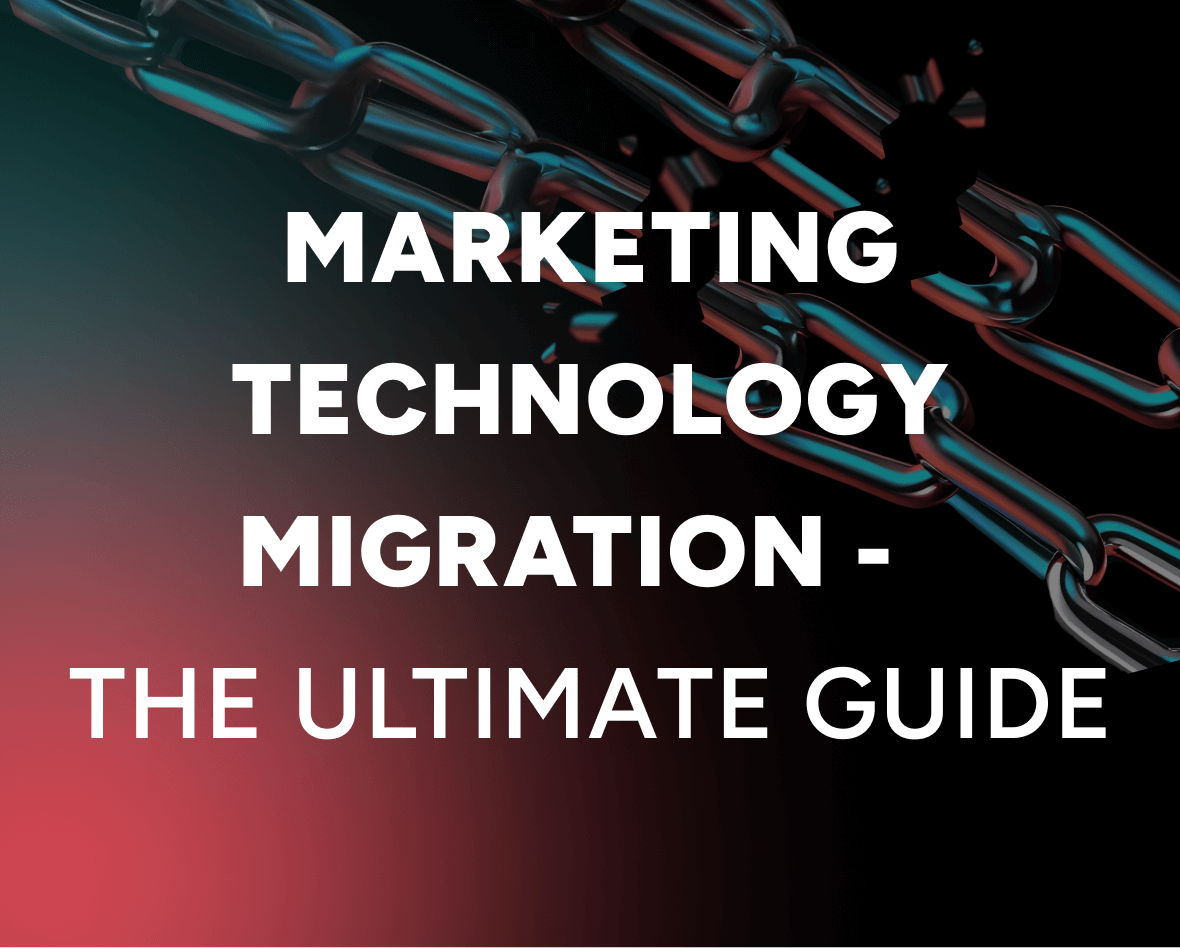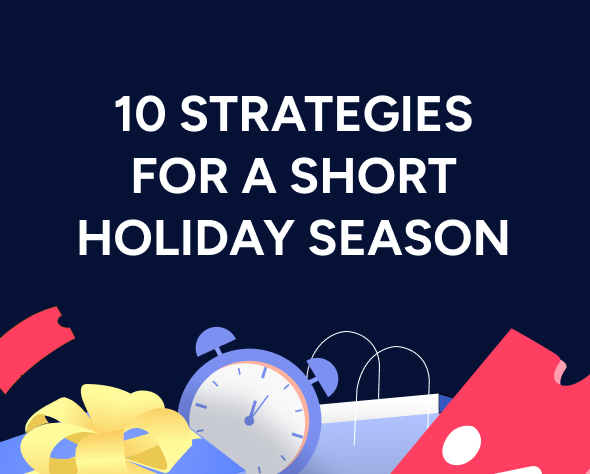How to leverage AI product recommendations and transform your onsite engagement
AI-driven personalized shopping experiences improve customer retention and drive, on average, 44% of repeat purchases worldwide. To increase customer retention and purchases, you need to provide a personalized and engaging customer experience—every single time.
Updated on 3 Jun 2025
But the truth is, recommending products your customers love is an art because it involves a balance of understanding customer preferences, analyzing data, and anticipating their needs. And when you have hundreds of thousands of customers worldwide and millions of SKUs, how can you always recommend the right product to the right person?
Artificial intelligence (AI) makes this possible.
In this article, we take a look at how AI-driven product recommendation engines work in ecommerce, including their benefits, implementation, best practices, and success stories.
AI and machine learning
To deliver relevant product recommendations, AI analyzes customer data and then uses that information to enable marketers to provide relevant suggestions making their lives easier.
Machine learning, on the other hand, is a subset of AI enabling systems to learn and improve from data without being explicitly programmed. Machine learning algorithms navigate extensive datasets and start to automate personalized recommendations based on user behaviors to create a more natural and engaging experience.
Why do AI product recommendations matter?
AI-powered recommendations are important because customers expect relevant experiences; without them, you lose brand loyalty, trust, and CLTC. AI-powered recommendations allow you to deliver only the most relevant, timely, and contextual recommendations to ensure customers receive an experience that resonates with them.
Additionally, using AI in your marketing can help you save time, improve efficiency and productivity, and give you more precise recommendations to drive results.
For example, AI-powered product recommendation algorithms enable you to suggest “frequently bought together”, “complementary products”, “category-based recommendations”, and more. You can provide these product recommendations in different touchpoints such as the Web, App, WhatsApp, SMS, Email, and more.
How do AI algorithms analyze customer data to make predictions?
Ever wondered how AI algorithms work? Let’s break it down….
- Collect data and turn it into actionable insights
The journey begins with collecting customer data. This data includes past purchase history, browsing behavior, product views, and demographic details.
However, some data can be raw data, which is known as messy and unstructured data. AI algorithms clean data and reformat it to make it useful.
For example, a company collects a vast amount of customer data, including which products customers have viewed, added to their cart, purchased, and even those they’ve spent time reading about but didn’t buy. Additionally, the company gathers demographic information and tracks browsing patterns on its site.
By using AI algorithms, the company organizes data, making it possible to analyze and interpret. The AI then goes a step further by identifying patterns and behaviors among its customers.
- Identify and build customer segments
While every customer is unique, there will be overlap in their behaviors, preferences, purchase history, and predicted interests. A Customer Data Platform (CDP software), like Insider, offers 120+ attributes that AI algorithms can leverage to identify user segments. These segments should be dynamic and evolve in real-time.
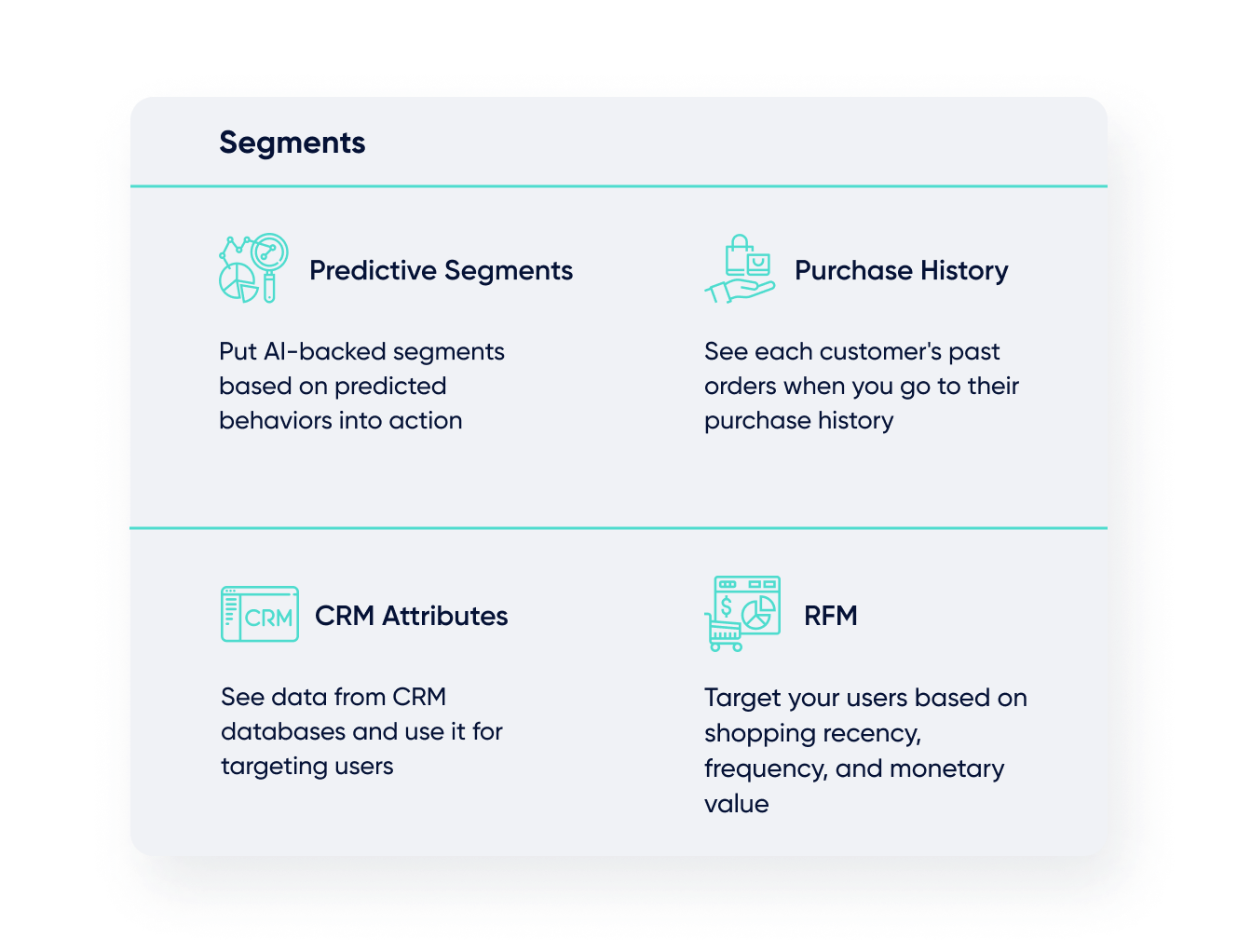
3. Leverage predictive analytics to increase CLV
AI algorithms can leverage historical customer data to identify patterns and predict efficiently.
This advanced approach allows you to provide tailored product suggestions for every customer.
For example, when a customer is interested in athletic and running shoes, the algorithm can suggest complementary items such as fitness trackers or specialized sportswear. These recommendations ensure that each suggestion resonates personally with the customer. This personalized engagement not only enriches the shopping experience but also significantly increases the potential customer lifetime value of each customer by building loyalty and encouraging repeat purchases.
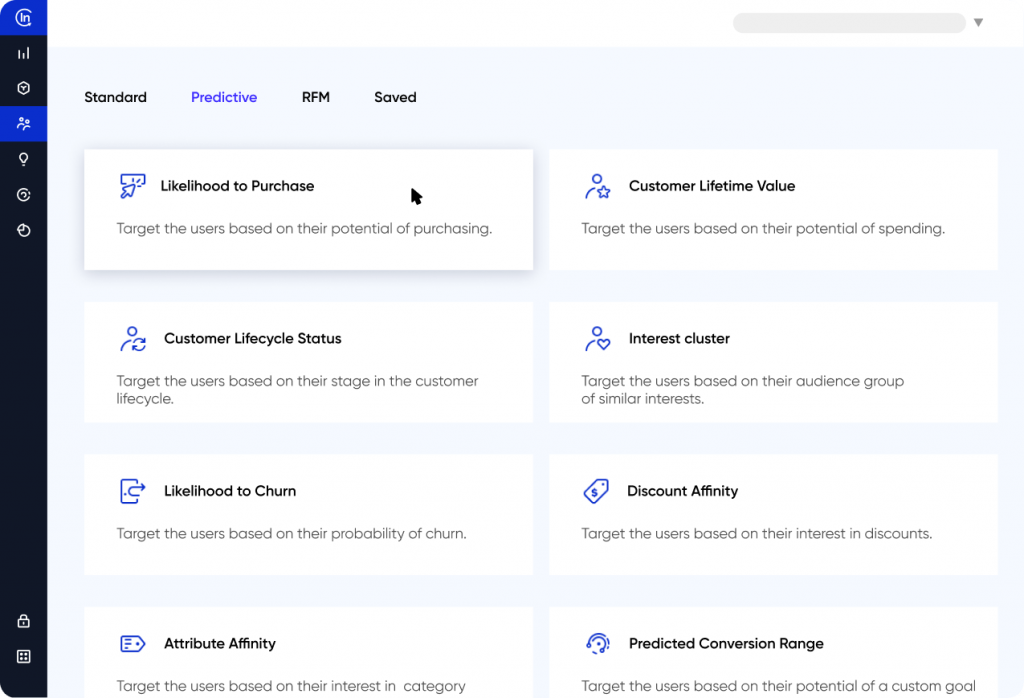
4. Adopt real-time data
AI doesn’t conclude its efforts after making initial recommendations. The algorithm continuously analyzes and interprets customer interactions across every touchpoint to inform, redefine, and update its information based on real-time changes.
By continuously updating its understanding based on every interaction, AI ensures that every recommendation remains relevant, timely, and aligned with evolving customer preferences. This improves customer satisfaction and significantly boosts engagement by delivering personalized content that customers find most valuable at any moment.
See why top brands trust Insider — try our product tours at your own pace.
4 benefits of AI product recommendations
So, why are AI-driven personalized recommendations important for marketers to understand and use? Here are the top four reasons marketers need to leverage AI product recommendations:
- Build customer loyalty through relevance and convenience
The convenience of providing relevant products entices customers to return to the ecommerce site. Ecommerce marketing automation consistently offers valuable recommendations. This enables marketers to provide relevant suggestions, building brand loyalty.
- Increase sales and AOV
Choice fatigue is real and overwhelming for customers. Instead of offering too many choices and risking losing customers, AI recommendations streamline the process by presenting only relevant, personalized options. This simplifies the decision-making and helps customers quickly find what they are looking for.
As a part of this, you can also offer AI-powered recommendations that incorporate upselling and cross-selling. Highlight relevant products at a higher price or that complement the product customers are already interested in to increase AOV strategically.
- Gain more insights
AI-driven recommendation engines can provide valuable insights into product demand and inventory management. You can better anticipate demand for certain products by analyzing customer preferences and purchasing patterns. This helps reduce the risk of stockouts or overstock situations, optimizing inventory turnover and maximizing profitability.
- Improve product discovery
AI-powered recommendation engines can introduce customers to new products they may not have discovered. These algorithms will display new arrivals or highlight popular items to improve product discovery. This makes your customers feel seen, heard, and valued and creates an impression that you understand customers and feel like you know them better than competitors. That way, you can increase AOV, loyalty, and CLTV.
How to integrate an AI product recommendation solution step-by-step
- Select the right AI algorithms that match your needs
Evaluate recommendation algorithms according to your business requirements and dataset. Make sure you choose the one that allows you to meet your goals and needs.
- Integrate data sources with AI algorithm
Use a CDP to unify your customer data across channels like Web, App, Email, SMS, and more. This ensures a seamless flow of unified data for the algorithm.
- Track key metrics to gain insights
Monitor metrics such as click-through rates, conversion rates, lead collection, and average order values—whatever you deem to be the most critical metrics for your brand. Then, gather these results to evaluate the performance of your recommendations.
- Plan for growth
When integrating an AI product recommendation solution, it’s crucial to opt for one designed for scalability and capable of analyzing millions of data points. As your business grows, your recommendation system grows with it, seamlessly handling an increasing volume of customer interactions.
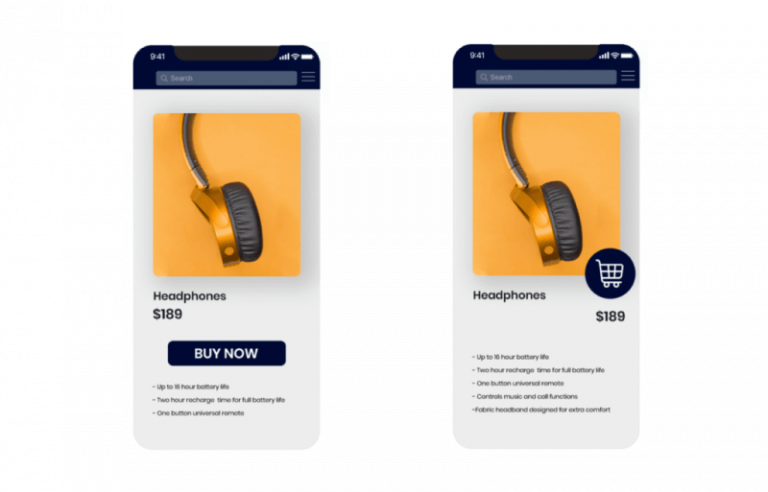
Tips for small to medium businesses starting with AI
Here are a few tricks you can apply when working with AI solutions:
- Start small and specific
Begin by focusing on a specific aspect of your business where you want AI recommendations to have the most significant impact. For example, you might want to provide AI-driven personalized product recommendations and personalized ecommerce email marketing campaigns. Starting with a smaller-scale approach allows you to gain experience and observe results without overwhelming your resources.
- Consider user privacy and trust
Make sure to consider data privacy and transparency. Communicate your data usage policies to customers and obtain their consent when collecting and using their data for recommendations.
- Train your team
Allocate resources for training and educating your team about AI technologies and their applications. A solid understanding of the fundamentals empowers your team to make informed decisions and use AI-driven systems efficiently and effectively.
AI product recommendations: Best practices and examples
You’ve found the best AI product recommendation solution for your needs, now you need to make the most of it. Here are four best practices and a real-life success story to do just that.
Best practice 1: Build a cross-channel customer experience
Maintain consistency across all customer touchpoints, from Web and Email campaigns to App, WhatsApp, and social media. Consistent and precise recommendations across channels will increase trust because 90% of customers expect consistent interactions across channels.
Best practice 2: Optimize for mobile
Mobile commerce sales reached $2.2 trillion in 2023 and now make up 60% of all ecommerce sales around the world.
Ensure that your AI recommendations are mobile-friendly and optimized for smaller screens. Mobile users should enjoy a seamless browsing experience, making exploring and purchasing recommended products easy.
Best practice 4: Eliminate manual work with your AI solution
Your AI solution should enable you to work more efficiently, streamlining your business operations and significantly reducing the time spent on manual tasks.
For example, you no longer need to build your customer segments by hand. Simply input your use case and let Insider’s world-leading generative, conversational, and predictive AI solution, Sirius AI™, create ready-to-use segments aligned with your business goal—whether you want to improve engagement, increase conversions, or both.
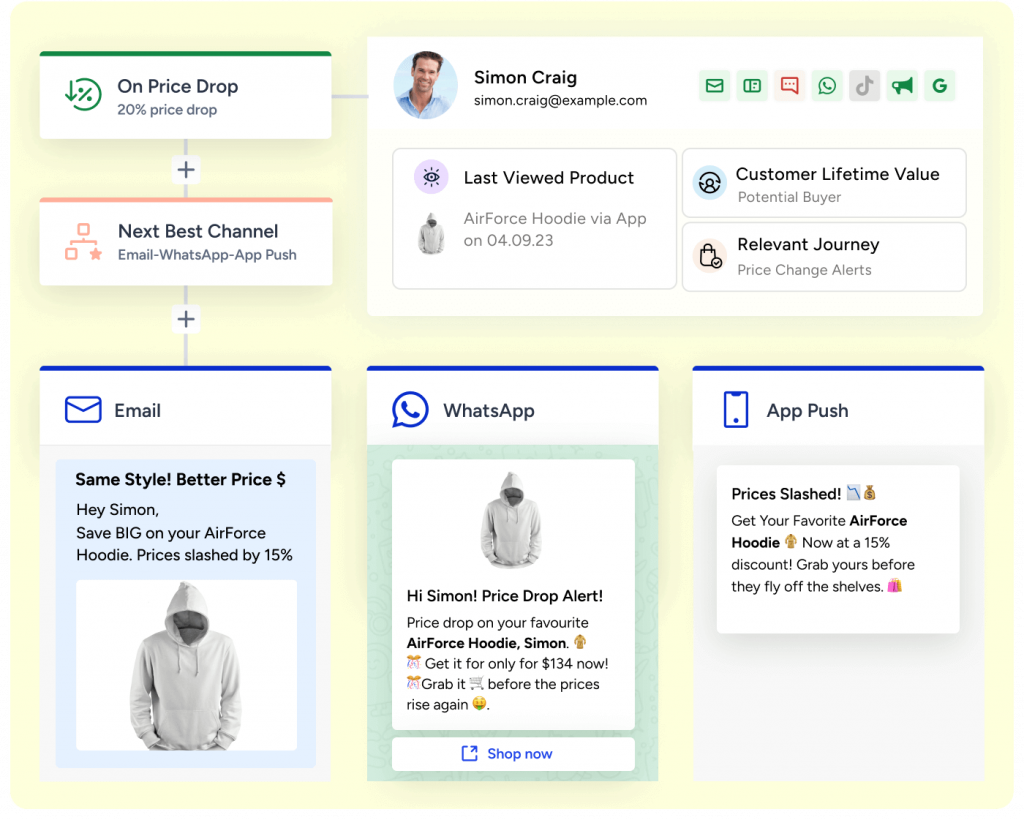
Sapphire achieved 12X ROI with AI recommendations
Sapphire, a leading Pakistani fashion retailer, was looking for a solution that will help customers find the right products for them in the quickest time. Sapphire wanted to improve product discovery and awareness to increase AOV by encouraging customers to discover relevant products they may not have previously seen.
Insider suggested using Smart Recommender to improve product discovery and streamline the browsing experience where customers could easily explore related products via the widget. That way, Sapphire achieved 12X ROI via Smart Recommender.

Enhance website performance, and drive results with AI product recommendations
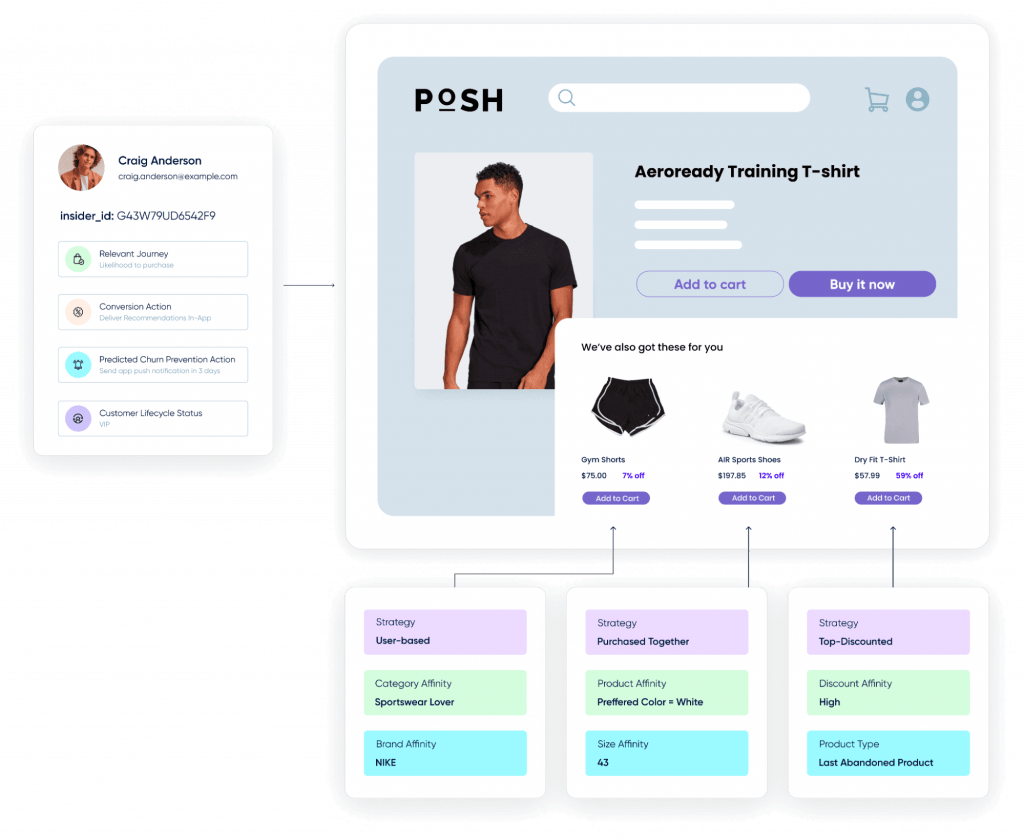
Insider is a world-leading, AI native marketing platform for personalized, cross-channel experiences. Its Smart Recommender empowers brands like Sapphire to improve product discovery and encourage customers to purchase. It offers comprehensive personalization capabilities tailored for websites, mobile apps, email personalization, SMS, WhatsApp, push notifications, and more. With Insider’s intuitive interface, brands deliver highly relevant product recommendations effortlessly, enhancing customer engagement and driving revenue.
Key features of Insider include data aggregation, automation, and engagement functionalities, empowering marketers to:
- Construct, automate, and personalize cross-channel product recommendations within their marketing campaigns.
- Reach the right audience with personalized messages across multiple communication channels.
- Implement tailored product recommendations using various strategies through a user-friendly drag-and-drop editor.
Join Insider to build your campaigns with AI
Join over 1,200 global brands, from high-growth startups to well-established enterprises, who have chosen Insider to centralize their data and power in every aspect of their customers’ journeys with AI. Schedule a demo with our team and discover how Insider can help you achieve your revenue goals.
FAQ
Product recommendation in AI refers to using machine learning algorithms to suggest specific products or items to customers based on their past behaviors, preferences, and interactions with a platform or e-commerce website. The goal is to provide personalized and relevant product suggestions to enhance the customer experience and drive sales.
AI recommends products to customers by analyzing their historical data, including browsing history, purchase history, and demographic particulars, to identify patterns and preferences. Algorithms then align these patterns with similar customer profiles and product attributes, generating real-time tailored recommendations. These recommendations are often displayed on the website, within email campaigns, or integrated into mobile apps.
Insider is an example of a product recommendation tool, particularly designed for ecommerce platforms. By analyzing a user’s browsing and purchase history, as well as drawing insights from similar customer behaviors, you can craft personalized product suggestions. These tailored recommendations, such as “Customers who bought this also bought…” or “Recommended for you” significantly enhance the shopping experience, guiding customers towards products that match their interests and needs.

